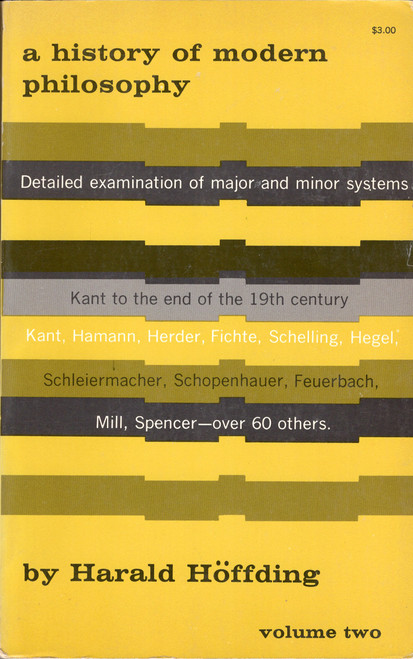One of the works most frequently referred to as a source for basic information, this monumental 400,000-word study provides an extremely clear, detailed coverage of modern philosophy from the Renaissance to the end of the 19th century.
Using the historical and comparative methods Professor Höffding analyzes major philosophers and systems in terms of theory of knowledge, logic, problem of existence, nature of man, as well as in terms of individual stresses and contributions. He also provides a valuable coverage of interesting minor systems which are all too often omitted in surveys; these systems include the later Schelling, Hamann, Jacob Boehme, Feuerbach, and over 150 others.
A discussion of the philosophic basis for the ideas of such men as Newton, Kepler, Copernicus, Galileo, Robert Mayer, Charles Darwin will interest philosophers, physical scientists, and readers interested in the philosophy of science.
Translated from the German Edition by B.E. Meyer
About the Author
Harald Høffding (1843-1931) was a Danish philosopher whose early work was influenced by Kierkegaard but who ultimately embraced the tenets of positivism. His best-known works in English include History of Modern Philosophy(2 vols., 1900) and Psychology, the Problems of Philosophy (1905).







